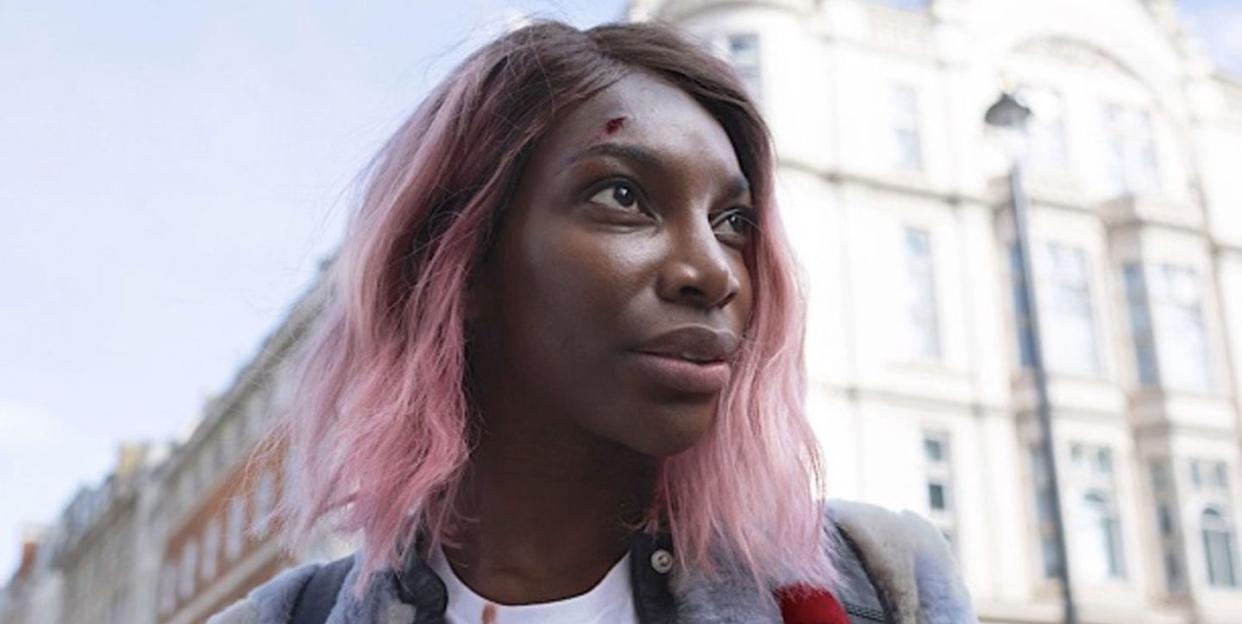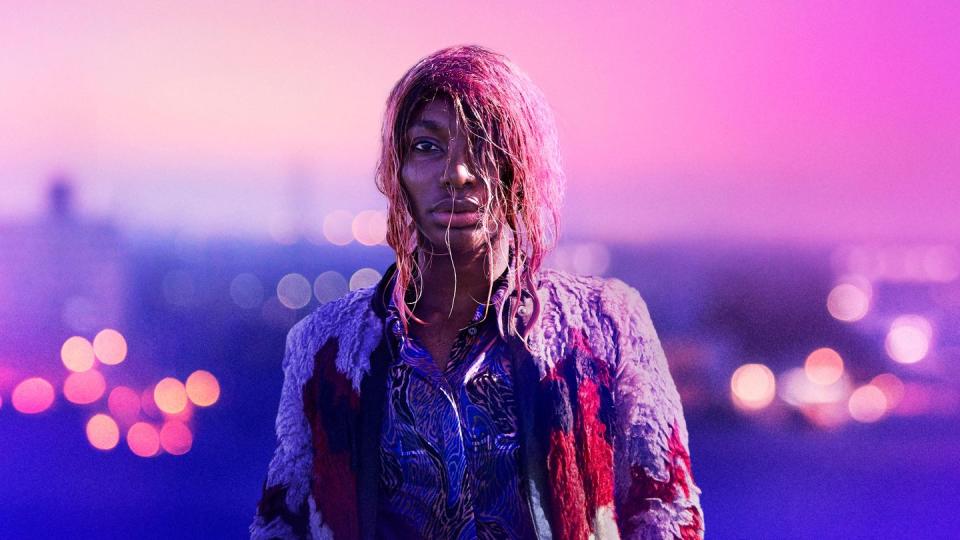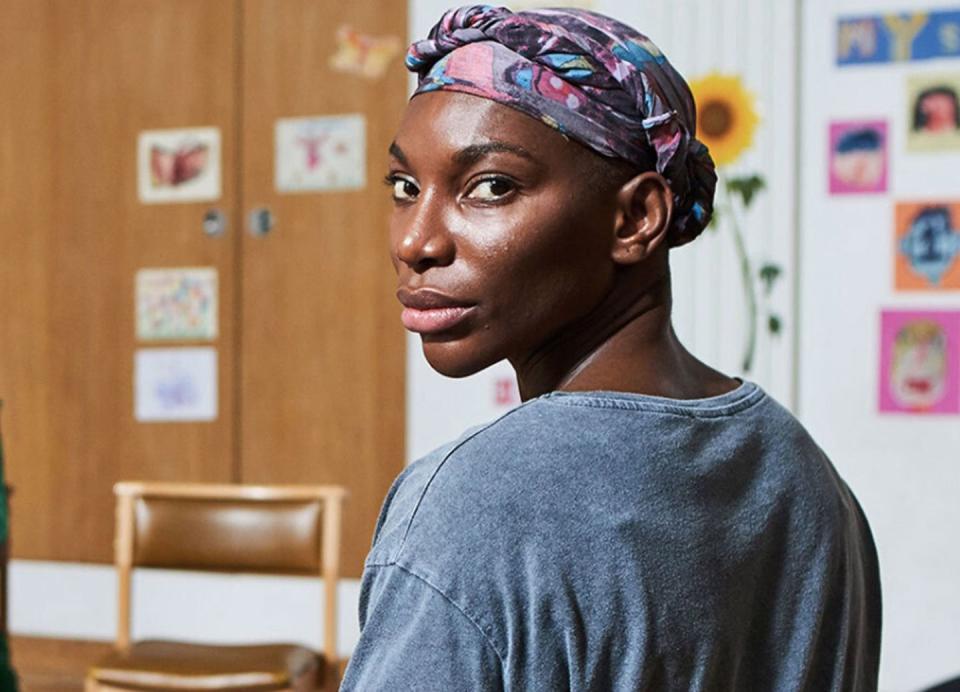I May Destroy You featured a creepy "unsettling figure"

The following article contains discussion of sexual assault that some readers may find upsetting. I May Destroy You spoilers follow.
2020 has done us dirty.
As the New Year bells chimed and we raised a glass to a brand new decade, full of promise – we hoped – little did we know what horrors awaited us.
But in the midst of the chaos, we were thrown a lifeline. Michaela Coel emerged from the flames with a piece of television so extraordinary, we cannot now claim that it was all bad when we stick two fingers up to the past 12 months as the clock strikes midnight come Dec 31.

I May Destroy You, which was marketed as one woman's quest to piece her life back together after being raped, rapidly expanded beyond that premise across its 12-episode run.
Consent, race, cancel culture and Black queerness are just some – and we really do just mean some – of the themes which Coel scrutinised, the writer, actor, director, singer (you name it, she does it) delving into a plethora of subjects that the mainstream media hadn't, or certainly not in that way.
It's only July, but it's hard to see how its creator will not scoop every accolade for a TV show which has already been lauded as the best of the year.

Critics and viewers alike have waxed lyrical about just how layered and detail-rich I May Destroy You is, but for every slice of brilliance that socks you right between the eyes, there are countless moments that drift under the radar, undetected on a first or even second watch.
If there's ever a show that demands multiple viewings, it's this.
"I've not seen anyone address this unsettling figure at the start of ep9, which has disappeared by the next comparable shot," tweeted journalist Robin Parker.
The "unsettling figure" in question:

Related: Why BBC's I May Destroy You doesn't need a second season
Like us, you're probably wondering how on earth the Grudge-esque form which, on closer inspection, looks like Arabella, escaped your attention in the first place.
It's never acknowledged and, as far as we know, we never see it again. But who's to say it isn't squirrelled away beneath her bed in earlier episodes, hidden among the paraphernalia and pain she hadn't felt able to engage with?

Coel wrote 191 drafts of I May Destroy You, which means this detail, like every other, is saying something. But what?
Could the figure be a physical manifestation of how Arabella is feeling (GCSE English, eat your heart out), a shadow of her former self, stripped of her spirit, her vibrancy diluted?
I May Destroy You spends significant time exploring the idea of the "perfect" victim, "debunking the theory that people who have been subjected to sexual assault can't appear unscathed, or okay, or even happy externally" we wrote in our review.
But in spite of Arabella's efforts to reclaim her life following her ordeal, she is haunted by the ghost of her trauma. It looms over her, and it's possible that here, in her room, we see it, if only for a second.
"There are Easter eggs littered all over that show and I think you have to rewatch and rewatch and rewatch to really begin enjoying it," Coel said on the Obsessed with… I May Destroy You podcast.

Not only did Coel write I May Destroy You – and solo, we should add, choosing not to employ the help of a writers' room – she also executive produced and co-directed, ensuring that her fingerprints are all over the final version.
Had that level of creative control been snatched away from her, the end product could have been a very different kettle of fish, watered down to suit someone else's idea of what it should look like.
But Coel's vision, thankfully, burns bright.
Rape Crisis England and Wales works towards the elimination of all forms of sexual violence and sexual misconduct. If you’ve been affected by the issues raised in this story, you can access more information on their website or by calling the National Rape Crisis Helpline on 0808 802 9999. Rape Crisis Scotland’s helpline number is 08088 01 03 02.
Readers in the US are encouraged to contact RAINN, or the National Sexual Assault Hotline on 800-656-4673.
Digital Spy now has a newsletter – sign up to get it sent straight to your inbox.
Looking for more TV recommendations and discussion? Head over to our Facebook Group to see new picks every day, and chat with other readers about what they're watching right now.
You Might Also Like


